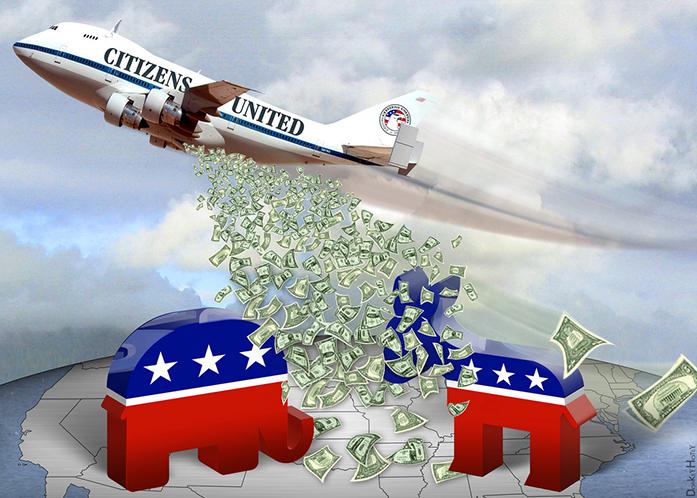In a post-Citizens United political landscape, the effects of multimillion-dollar and even billion-dollar Super PACS has loomed over the U.S. political system, but the American people could rest easily knowing that at least it is only American conglomerates and corporations buying elections. The Supreme Court decision made on Jan. 21, 2010, commonly referred to simply as Citizens United drastically changed the way the population could influence elections by removing limitations on corporate spending in support of political candidates. However, few would have thought that the implications of the ruling would include invitations to outside nations and entities to attempt to influence American elections in the same manner.
Research done by the Intercept, an online news publication has revealed a “total donation of $1.3 million” to Jeb Bush’s Super PAC Right to Rise USA. What is concerning to some is that the donations were made by a company owned by a Chinese couple and is the result of coordination between the owners and “arguably the most important Republican campaign-finance lawyer in American politics.” American Pacific International Capital Inc.’s total donation positioned the company as one of Bush’s largest donors, and with that comes obvious cause for concern.
While news such as this can be disconcerting upon the initial analysis, global involvement in U.S. politics may not be the beginning of the end as some might fear. Speculation about Russian involvement in the leak of nearly 20,000 private DNC email correspondence has been enough to give credibility to the notion of U.S. politicians being used as puppets for nefarious global entities. In that specific circumstance and assuming the leak really was an orchestrated ploy with the intent to destabilize the 2016 presidential election, the American people would have justifiable cause to raise an eye to the meddling of outside nations in our elections. However, it is not to say that any outside influence on our election system has to have the dire consequences forecasted by Russian involvement.
Globalization is an inescapable fact of life in the 21st century, especially so for a globally recognized superpower like the United States. The global superpower role is one that has been gleefully wielded by the United States and contributed to a mentality that has led to U.S. involvement both clandestine and publicized all over the globe. Somewhere there is a deposed Latin American leader laughing himself to sleep at the idea of an outside nation trying to force the hand of the American election system. Still, there is an alternative view to the narrative of the cloak-and-dagger regime change that could benefit the voting population of the United States.
In this day and age, global accountability is not a courtesy, it is a mandate given the intersecting spheres of influence of the global economy. The box checked on ballots in the U.S. resonate all the way to China, so it isn’t surprising there are other nations that would like a say on the outcome. The world cannot be seen as autonomous parts existing without any bearing on their neighboring parts. Traditional markers of territory do not apply to the movement of currency, ideology, or resource, and as a result, we may be approaching a time in which traditional ideas of sovereignty may too prove to antiquated.
We do not want to usher in a time in which outside nations can openly sabotage the affairs of other countries without consequence, but that is not to say in the near future there won’t be a time for increased global cooperation. The enforcement of global accountability has been a hallmark of U.S. foreign policy and shaped the manner in which we engage with the world as a whole. It would be foolish to assume that the day would never come in which an outside nation would take the same attitude when dealing with the U.S. No nation exists in a vacuum, and with the possibility of a Trump presidency and Britain’s departure from the EU, it wouldn’t come as a surprise that other countries are beginning to raise their eyebrows and deciding to take action.



